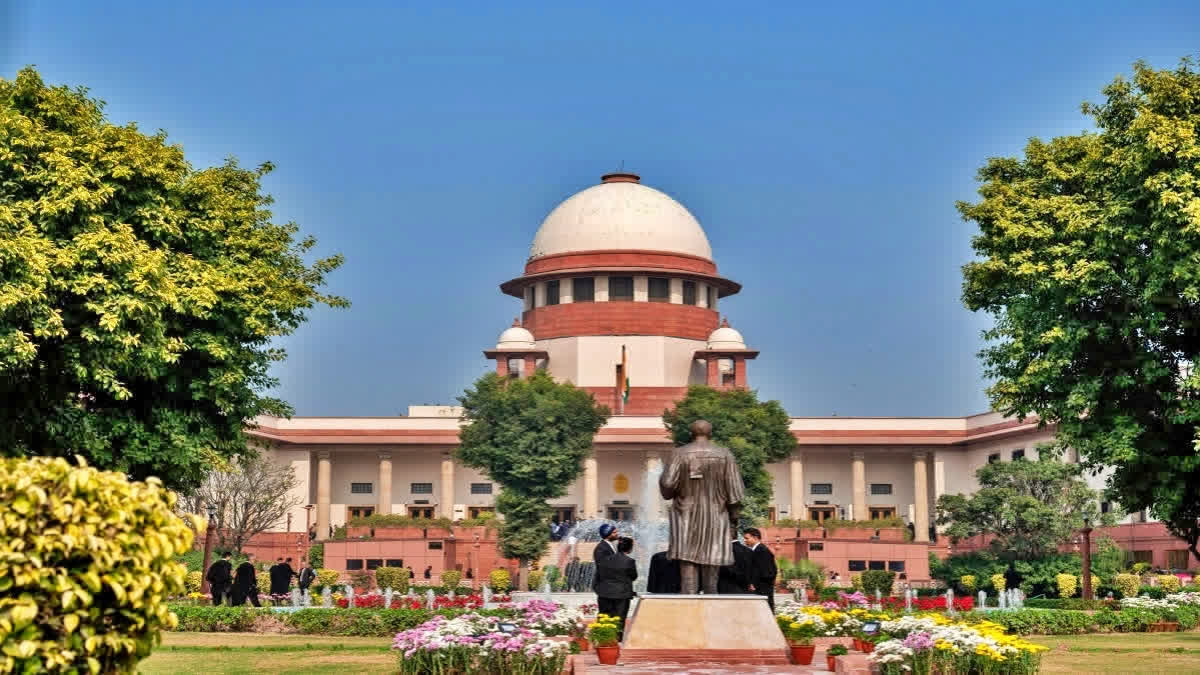New Delhi:The Supreme Court on Monday upheld a Punjab and Haryana High Court order, which quashed the policy of Haryana government granting additional marks to its residents in recruitment exams, saying that the state’s policy is a “populist measure”.
A bench comprising justices Abhay S Oka and Rajesh Bindal said: “We find absolutely no error in the impugned judgment. The special leave petitions are dismissed”. The apex court passed the order on pleas filed by Haryana Staff Selection Commission (SSC) challenging the high court order, which set aside a 2022 notification that granted 5% additional marks to domicile of Haryana in recruitment to certain posts based on "socio-economic" criteria.
During the hearing, the bench termed the Haryana government's policy a "populist measure", and made it clear that it is not keen to entertain the petition and the court would not interfere with the order passed by the high court.
The high court had held as unconstitutional the socio-economic criteria prescribed by the Haryana government to grant additional marks to certain classes of candidates for state government jobs.
The apex court said that a meritorious candidate after his performance gets 60 marks, and, on the other hand, somebody else has also got 60 marks but only because of five grace marks that person goes up. "They are all populist measures. How do you defend such an action that somebody is getting five marks extra?", said the apex court.
Attorney General R Venkataramani, justifying the policy, said the Haryana government brought it to give opportunities to those who were deprived of the security of public employment. “At the written test level, this economic criteria do not even enter into reckoning. It enters the reckoning only at the later stage. The high court said you conduct the test all over again, for what purpose?”, said the top law officer.
The bench replied that the high court had given reasons even for issuing that direction. The AG stressed that the application of socio-economic criteria took place after the written test stage and not upon the Common Eligibility Test (CET), and added that high court directions need to be relooked. However, the bench made it clear it is not keen to entertain the petitions assailing the high court order. “Those who were appointed will continue in employment….the manner in which the entire process is conducted the high court has said something about it…”, said the bench, junking the appeal.
On May 31, the high court struck down the state government's policy of granting five per cent bonus marks on the socio-economic status of the candidate, who is a state resident, to the total percentage of marks in the CET for groups C and D posts.
The high court had ruled that no state can restrict employment to its own residents alone by allowing the benefit of five per cent weightage in marks and had said, "The respondents (state government) have created an artificial classification to the similarly situated candidates applying for the post”. The high court had criticised the state government for the policy and said it had conducted the entire selection in a "wholly slipshod manner".
Read More
NEET-UG: SC Refuses to Stay Re-Test or Postpone Counselling; Issues Notice to NTA
